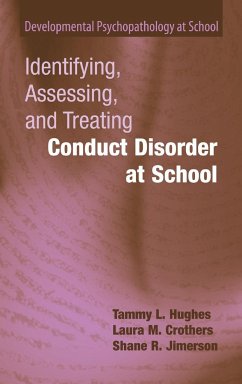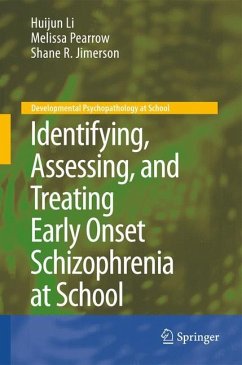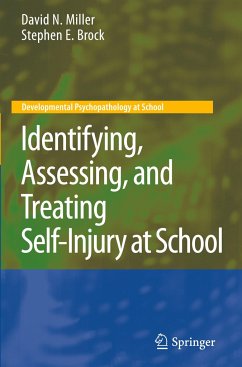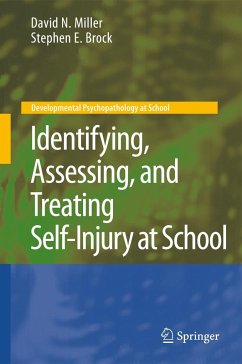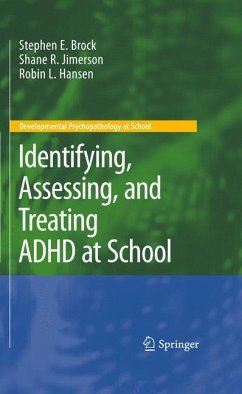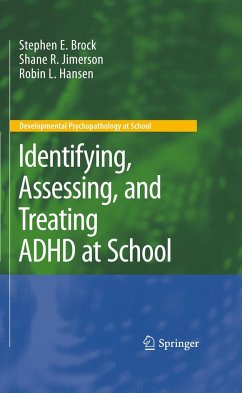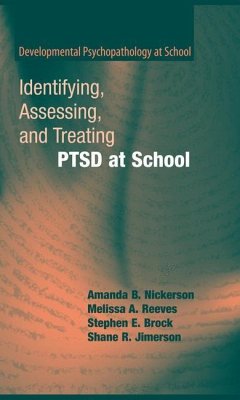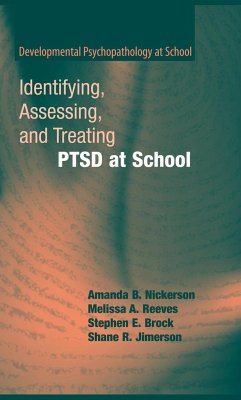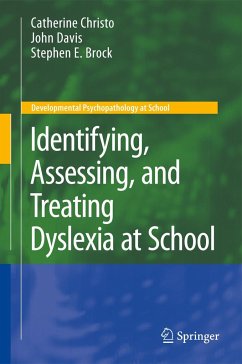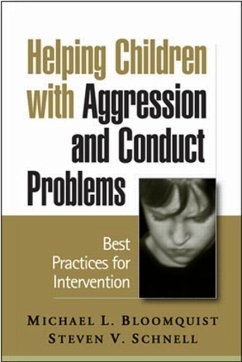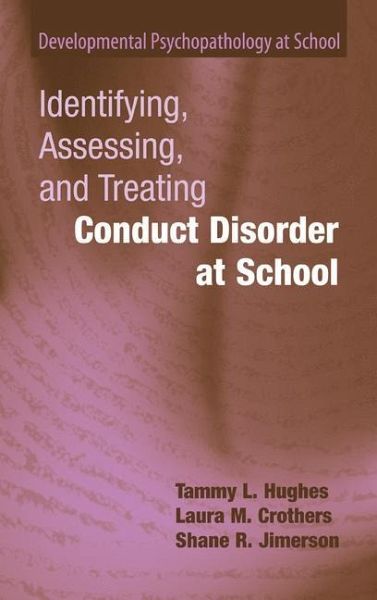
Identifying, Assessing, and Treating Conduct Disorder at School
Versandkostenfrei!
Versandfertig in 6-10 Tagen
38,99 €
inkl. MwSt.
Weitere Ausgaben:

PAYBACK Punkte
19 °P sammeln!
Concern continues to ripple throughout society over the escalating incidents of youth violence and aggression. School professionals confront daily the challenges resulting from conduct disorders, which threaten to disrupt the learning process and compromise the well-being, security, and safety of students and faculty. With the ongoing emphasis on high-stakes academic testing, schools are struggling to pinpoint effective strategies and secure the resources needed to identify, assess, and treat students with conduct problems so that all children can succeed at school.Identifying, Assessing, and ...
Concern continues to ripple throughout society over the escalating incidents of youth violence and aggression. School professionals confront daily the challenges resulting from conduct disorders, which threaten to disrupt the learning process and compromise the well-being, security, and safety of students and faculty. With the ongoing emphasis on high-stakes academic testing, schools are struggling to pinpoint effective strategies and secure the resources needed to identify, assess, and treat students with conduct problems so that all children can succeed at school.
Identifying, Assessing, and Treating Conduct Disorder at School bridges the gap between science and practice, providing school professionals with the information they need to coordinate efforts and enhance communication between parents, other educators, administrators, and social services providers. In addition, it offers guidance on the interventions that are likely to be most effective in meeting the unique needs of youths with conduct disorder. This volume: Emphasizes why school psychologists and their colleagues need to be prepared and able to identify and serve students with conduct disorder; Identifies the prevalence, influences, and associated conditions; Provides a review of screening, referral, and diagnostic assessment processes; Offers guidance on conducting psychoeducational assessments; Reviews evidence-based treatments; Provides practical guidance on setting up programs that address individual, classroom, and schoolwide issues.
School psychologists and other education and mental health professionals will find this volume an invaluable resource in working to enhance the mental health and educational development of students.
Identifying, Assessing, and Treating Conduct Disorder at School bridges the gap between science and practice, providing school professionals with the information they need to coordinate efforts and enhance communication between parents, other educators, administrators, and social services providers. In addition, it offers guidance on the interventions that are likely to be most effective in meeting the unique needs of youths with conduct disorder. This volume: Emphasizes why school psychologists and their colleagues need to be prepared and able to identify and serve students with conduct disorder; Identifies the prevalence, influences, and associated conditions; Provides a review of screening, referral, and diagnostic assessment processes; Offers guidance on conducting psychoeducational assessments; Reviews evidence-based treatments; Provides practical guidance on setting up programs that address individual, classroom, and schoolwide issues.
School psychologists and other education and mental health professionals will find this volume an invaluable resource in working to enhance the mental health and educational development of students.





